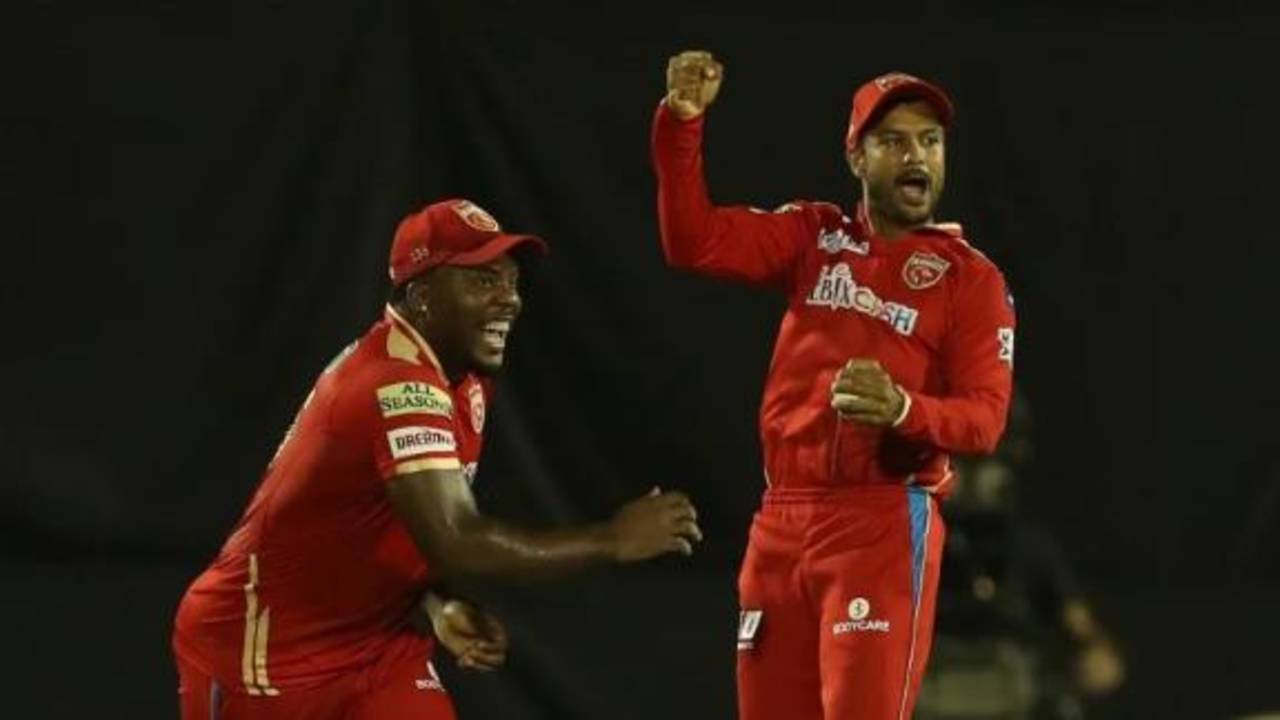It was clear at the auction table the kind of cricket Punjab Kings were going to play this season. They went after big hitters, and managed to successfully put together an exciting team. Eleven matches into the tournament, they are the only team batting at more than 10 an over in the powerplay. In fact, their 10.94 is 2.11 an over better than the next best. They are averaging 11 sixes per innings, only 1.5 behind the leaders Rajasthan Royals on that count. They have also lost 23 wickets, which makes it higher per innings than any other team.
Some of this proactive batting approach has been dictated by their losing two tosses out of three, which means they have had to undertake the task of putting on dew-proof totals on two occasions. On both occasions, they have given it a red-hot go. That they haven't been able to post those above-par totals is a different story; they still have one win out of two batting first.
But it is refreshing to see them adopt the same approach against Chennai Super Kings even after getting bowled out for 137 against
Kolkata Knight Riders in their previous such attempt. In that match, only when they had lost five wickets did they do something conventional: hold Odean Smith back for the death overs. Having lost that match, it must have taken a strong commitment to that style, especially after they lost two early wickets against Super Kings.
Liam Livingstone, though, unleashed an all-out attack to threaten to take them past 200. That they couldn't post such a huge total will be a matter of a small concern for them despite managing to win by a massive margin of 54 runs. Kings are clearly one of the most exciting teams to watch this IPL, but if they are missing one thing, it is depth in batting.
Jonny Bairstow's arrival will add to quality in the middle overs, but it won't stretch their batting line-up beyond No. 7, which is where Smith bats. When the pitches get slower, it might become a bigger issue for them, but they still acknowledge that they can't afford to play conservatively especially when batting first.
Mayank Agarwal, their captain, spoke of the importance to keep playing in this manner but having the "emotional intelligence" to not get bogged down if it doesn't come off. Agarwal himself hasn't had a great start to the tournament - scores of 32, 1 and 4 - but he has come out batting with the same intent.
That they managed to score 180 against Super Kings despite the wobble in the second half of the innings is a good example that the opportunity cost of going hard all the way is not that high. If it does come off, though, they can get to the kind of totals that provide you insurance against the dew.
If they keep batting this way, it goes one of the two ways. They can get better at it, and it starts to come off spectacularly. Even when it doesn't come off, it isn't necessary they always end up with a below-par score. That's something they seem to be aware of. You can file it under emotional intelligence or avoiding panic at losing wickets or even a match or two because sides batting first are losing anyway.
Once pitches start to slow down, it will be another story. That can wait.
